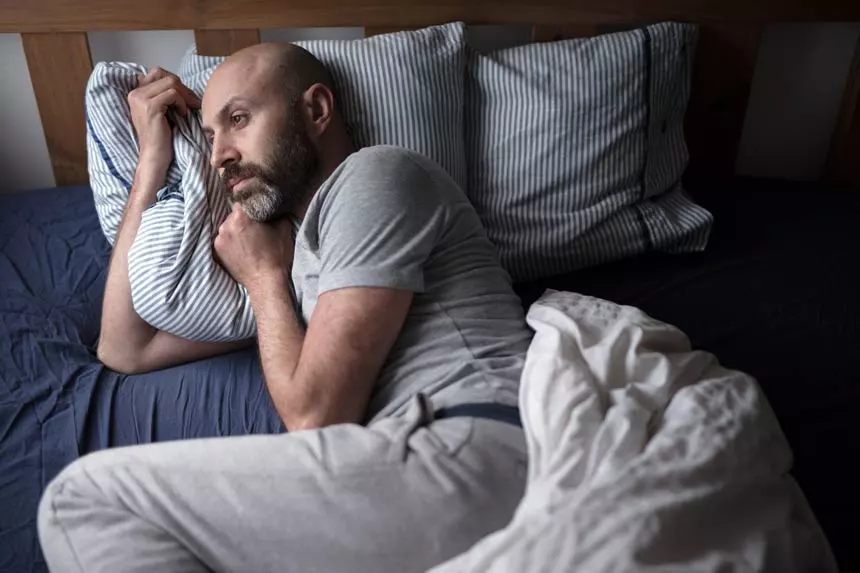What Is Cocaine?
Table of Contents
Cocaine is a stimulant drug made from coca leaves and is an illicit drug with very limited medical uses. Cocaine is often mixed with other things such as baking powder, flour, or other substances as drug dealers are able to maximize their profits this way.
There is no safe way to use cocaine as an individual is forced to trust in a drug dealer who most likely does not have their best interests. A drug dealer may mix cocaine with other substances as a way to make it more addictive and force individuals to crave more.
It is important for individuals struggling with cocaine use to receive treatment for their experience, and the right form of cocaine addiction treatment is crucial. The longer an individual continues to use cocaine, the more health issues the individual will face. Recovery is possible, keep reading to learn more about cocaine and how it is treated!
How Is Cocaine Used?
Cocaine can be consumed in different ways and is able to be injected, snorted, smoked, or eaten. One form of cocaine is crack cocaine which is a solid form. This solid rock-like cocaine is much more potent than powdered cocaine and is typically smoked as a method of ingestion.
Cocaine Abuse And Mental Health Disorders

Cocaine is an easily abused substance. Through the many different methods of use, an individual can quickly become dependent upon it. Individuals struggling with mental health disorders are more likely to become addicted to cocaine.
A mental health disorder is a type of psychiatric condition in which an individual’s thinking, feeling, mood, behavior, and perception are affected. Mental disorders are managed throughout an individual’s daily experience and can cause a lowered quality of life.
Individuals with mental disorders are at an increased risk of addiction and can struggle with inhibiting substance use. Some of these individuals may have a substance use disorder. According to the Substance Abuse and Mental Health Services Administration, a substance use disorder is a mental disorder that affects an individual’s control over substance use.
A cocaine specific substance use disorder is called cocaine use disorder. Individuals suffering from a cocaine use disorder struggle with cocaine dependence. This dependence can have severe effects on an individual’s health, body, and mind.
As cocaine is a highly addictive substance, it is very easy for an individual to become dependent upon the substance. Cocaine dependence within an individual appears as unable to properly function without it. Learn more about cocaine dependence here!
Side Effects Of Cocaine Abuse
Cocaine affects many different parts of the body. With long-term or continued cocaine use, an individual is at an increased risk of many health issues. Some of the side effects of cocaine can include:
- Euphoria
- Mental alertness
- Hypersensitivity
- Paranoia
- Irritability
Cocaine can influence important functions that are necessary for proper bodily function. Many of these health effects include:
- Constricted blood vessels
- Dilated pupils
- High blood pressure and body temperature
- Body tremors
- Restlessness
- Fast or irregular heartbeat
Cocaine is a highly toxic substance and direct contact with it can cause deteriorating functions within an individual’s body. The method of consumption for cocaine use can affect what part of an individual’s body faces the majority of the damage.
- Intravenous cocaine use can lead to skin or soft tissue infections and collapsed veins. Intravenous drug use in general also increases the risk of contracting diseases such as HIV, Hepatitis C, and other blood-borne diseases.
- Snorting cocaine can lead to a loss of smell, frequent nosebleeds and runny noses, and difficulties swallowing.
- Smoking crack cocaine can lead to heavy respiratory issues including a chronic cough, asthma, and an increased risk of contracting respiratory infections.
- Consuming cocaine by mouth can lead to bowel decay and increase issues in digestion.
Withdrawal Symptoms

Cocaine can have many psychological withdrawal symptoms which make cocaine so difficult to manage without treatment. As an individual faces withdrawals, they battle with the unbearable experiences that come with drug use.
Some of the withdrawal symptoms of cocaine include:
- Depression
- Anxiety
- Extreme Fatigue
- Insomnia
- Paranoia
What Does A Cocaine Overdose Look Like?
It is possible for individuals to overdose on cocaine. With continued cocaine abuse, toxins build up in the brain and body. This can be seen especially when mixing cocaine with other drugs.
Individuals may mix substances as a way to achieve a stronger high however, this can quickly lead to sudden death. According to the National Institute on Drug Abuse, the signs and symptoms of a cocaine overdose include:
- Difficulty breathing
- High blood pressure
- Extreme agitation or anxiety
- Hallucinations
Some of the more severe signs of a cocaine overdose include:
- Irregular heart rhythm
- Heart attacks
- Seizures
- Strokes
How To Treat Cocaine Addiction
There are many different forms of treatment available to treat cocaine addiction. Being a stimulant drug, there are stimulant-specific treatments that can best support recovery from cocaine abuse.
Treatment centers have a wide range of resources available to support and benefit individuals struggling with recovery. This can include mental health services in the form of individualized therapy and substance abuse education.
Medical Detox
Medical detox is typically one of the first steps in substance abuse treatment. Cleansing the body from substances and allowing an individual to function without substances helps in transitioning them to recovery treatment.
A medical detox is an inpatient or residential style of treatment that provides 24-hour care and medical supervision. This allows individuals struggling through withdrawals to safely detox from substance abuse.
Withdrawals can be relapse provoking and potentially life-threatening. With long-term or extended use of a substance, an individual may rely upon a substance to maintain proper body functions. Medical staff can support individuals through this experience.
A cocaine detox may include medications as a method of supporting individuals through their withdrawals and negative health experiences. Medications can help alleviate some symptoms such as cravings or anxiety.
While medications assist through this process, they do not help individuals through the addiction recovery process. Behavioral treatments are the forefront of the addiction recovery process for cocaine addiction.
Inpatient Treatment

Inpatient therapy is a residential form of treatment that requires an individual to live on-site at a treatment facility. Residential treatment programs are often long-term programs to provide stability to a recovering individual.
One of the well-known treatment models for residential treatment includes the therapeutic community (TC). TC supports an individual in rebuilding their social skills and allowing them to learn in a stable environment.
This psychosocial treatment works by engaging the entire environment and community of an individual to allow an individual to practice and learn how they need to. This is typically a long term form of treatment however, short-term programs may also be available.
Stability is a key component of treatment. Drug abuse in individuals provides for a very unstable lifestyle and causes individuals to rely on drugs to manage their experience. A stable environment allows individuals to learn how to live and manage their experiences without drugs.
Outpatient Treatment
Outpatient therapy is a flexible form of treatment that allows individuals to continue following their responsibilities, such as work or school, while still receiving treatment. The treatment styles in this form of treatment can vary in intensity.
Group therapy is a major part of outpatient treatment and is very beneficial for recovering individuals. Group therapy provides a space for an individual to be surrounded and communicate with other recovering individuals.
Although there are many resources and support staff that can help through addiction treatment, struggling individuals often find the most comfort when communicating with others who have experienced what they have.
Drug Abuse Treatment Programs

Treatments and programs are constantly being developed however, there are two forms of treatment programs for drug abuse and addiction; Pharmacotherapies and behavioral therapies.
Pharmacotherapies are treatments that use medications for disorders or diseases. In addition, they typically help support individuals through the negative symptoms and relapse-provoking feelings.
Behavioral therapies are a form of psychotherapy or therapy for the mind. This form of therapy is based on rebuilding and rewiring certain brain functions to help combat the difficulties of addiction.
In all addiction treatments, there are different styles of treatment that benefit every individual differently. Cocaine treatment specifically mainly focuses on behavior therapy as a method of treatment.
Cocaine Treatment Medications
Unfortunately, there are no officially approved cocaine addiction treatment medications, as stated by the National Institute on Drug Abuse. However, certain medications are often used during and after detox to help Individuals build a strong recovery and avoid experiencing overly intensive symptoms.
There is a cocaine vaccine in development that has undergone controlled clinical trials. This vaccine stimulates the immune system by supporting the creation of anti-cocaine antibodies which attach to cocaine molecules within the body and prevent them from reaching the brain. This vaccine, however, is not currently available.
Anti-craving agents are sometimes used for those going through stimulant withdrawal. In addition, antipsychotics might be necessary for those going through drug-induced psychosis.
One of the more common symptoms individuals often experience at this point in the cocaine recovery process is the sensation known as coke bugs. It feels similar to bugs burrowing under one’s skin, and it is an extremely frightening and uncomfortable hallucination (Center for Substance Abuse Research). Other symptoms can include:
- Violent behavior
- Suicidal thoughts
- Confusion or disorientation
- Paranoia
Drug-induced psychosis might last for a week or so. Some instances are severe enough that an individual may need to be isolated and sedated during this period.
Antidepressants are also used in many cases of cocaine addiction treatment. This is because these medications can treat lingering symptoms of depression, which often continue for weeks and sometimes even months after withdrawal has ended.
Not every individual will need all of these medications, but they can be extremely helpful for certain individuals in recovery from cocaine. Still, it is important to remember that none of these drugs actually treat cocaine addiction but rather the symptoms associated with this syndrome.
All cocaine-addicted individuals need to receive help putting an end to their substance abuse and learning to live a safer, sober life. Though medications are an important aspect of the programs that provide recovery from cocaine abuse and addiction, they cannot treat the disorder itself.
Therefore, behavioral therapies are often relied upon as the main cocaine addiction treatment option.
Cocaine Behavioral Therapies

Addiction leads to the deterioration of certain parts of the brain, such as the central nervous system. Behavior therapy allows individuals to understand drug abuse, properly inhibit negative behaviors, and to better manage stressful circumstances or triggering experiences.
Group therapy is another often-used treatment program for cocaine addiction. Individuals are asked to share their experiences with one another. This helps individuals to see themselves through the eyes of others in the same situation, and it allows them to build a social network of individuals they can not only trust but who all have similar experiences.
In most cases, therapy is the main option for cocaine addiction treatment, and most rehab centers utilize a combination of these therapies and medications to treat withdrawal.
Cognitive Behavioral Therapy
Cognitive Behavioral Therapy (CBT)is often used to help former cocaine abusers learn how to avoid relapse in the future. This therapy program focuses on changing the behaviors of the individual from positive to negative ones.
It can also help individuals explore the reasons why they started abusing cocaine in the first place, which could often be associated with comorbid disorders like depression, anxiety, schizophrenia, etc. CBT can help to treat co-occurring disorders (also known as dual diagnosis).
Individuals dealing with these issues must be treated simultaneously for both, and CBT is an effective option for this situation.
Contingency Management
Contingency management (CM) is a behavioral therapy that focuses on reinforcing positive drug-free behaviors through reward. This is achieved as individuals receiving treatment provide a drug-free urine sample and are awarded a healthy voucher such as a food coupon or movie ticket.
This helps individuals maintain their abstinence and recovery by replacing the euphoric feeling from substance use with tangible drug-free rewards.
The Matrix Model
The Matrix Model is a therapy program that was created in the 1980s specifically for the treatment of cocaine abusers. This program focuses on a strong bond between an individual and the therapist, and it uses a combination of different types of evidence-based treatments including drug education, self-help, and relapse prevention.
Cocaine Recovery Timeline
Cocaine recovery will take a different amount of time for different individuals. Some people are able to go through the process quickly while others may need more time.
In general, detox from cocaine takes several weeks, and withdrawal symptoms may linger for weeks (or even months) after withdrawal ends. This is known as post-acute withdrawal syndrome or PAWS.
Rehab for cocaine may take anywhere between 30 days and a year depending on the severity of the individual’s addiction and the treatment program chosen. An individual struggling with cocaine dependence typically requires extended treatment.
Aftercare can include additional treatment programs, support groups, and other options that may continue on for as long as necessary, sometimes as long as the rest of the individual’s life.
Many people will require multiple treatment programs over time in order to stay sober, but this is normal for recovering individuals, especially those who have been abusing drugs as intense and dangerous as cocaine.
These programs are very beneficial in assisting individuals with maintaining recovery. Continuing to take on treatments and interact with other individuals supports both themselves as well as other individuals.
Find Addiction Treatment: Here
Trying to find treatment on your own can be a great struggle. It can seem immensely difficult to just get the help you need. Here at Find Addiction Rehabs, we can help make that process easier!
Whether finding a treatment center in your location or connecting you with recovery tools and resources, our hotline is available 24/7 to make sure you can get the help you need, anytime you need it.
Cocaine causes detrimental effects on the body. It is important to get help when dealing with this substance. Call us today and we can help get you the proper treatment you need to overcome cocaine!

